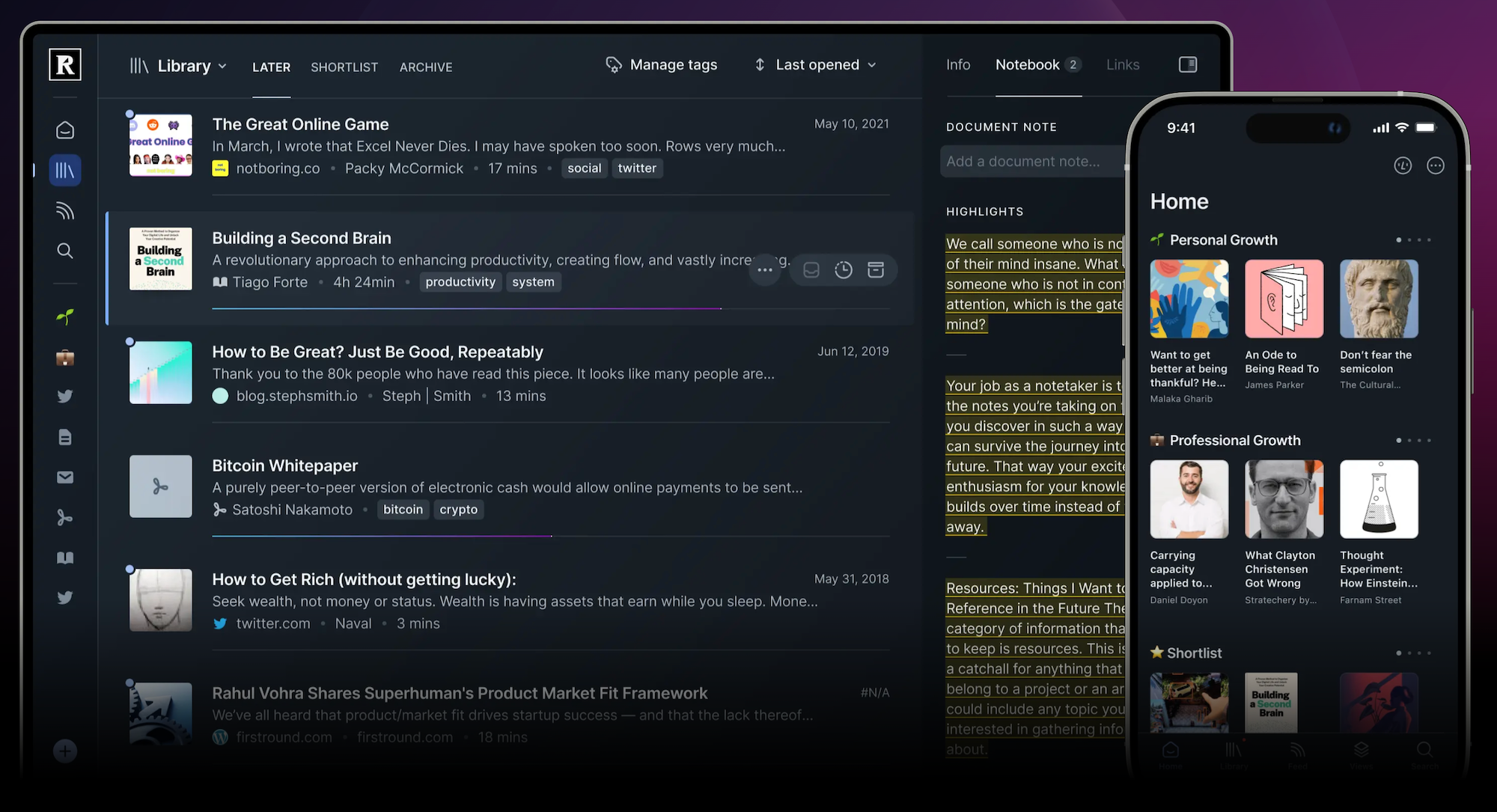Readwise Reader isn't perfect, yet..
I recently moved all my reading, including my RSS subscriptions, to Readwise Reader, which I now use as a feed reader and a read-later service. Many services do these two things far better than Reader, but separately. This service tries to merge these two usages into a seamless workflow and does it well enough for me to finally adopt.
I once used Feedly and Pocket but could never settle into a good workflow. My inability to form a habit of reading these two independently is as much to blame as the services themselves. I did move to more polished solutions—Feedbin, Reeder, Instapaper, and Reader (as Read Later)—but just changing the services was never enough.
So, if Reader isn't perfect, what makes it succeed when near-perfect services cannot? Well, there is one big reason. Reducing the cognitive overhead of deciding which app to open is transformative. The Readwise team identifies a key reason behind this pain in their announcement post.
You would think that the more you use one of these apps, the better it would get. Instead, the experience steadily degrades causing would-be power users to churn after a few weeks or months. Why? Because most of us save more things than we can actually get through. As a result, your inbox runneth over, turning your digital garden into a digital graveyard.
The workflow that the Readwise team refers to is working for me. I now just open Reader and triage through feeds, either reading a post or saving it for later. If I am through feeds and still have time, I jump to the library, highlighting bits I find inspiring.
The fact that Reader is seamlessly integrated with Readwise is a bonus. These highlights are available for me to revisit and even sync to Obsidian to share on my link blog. It's simple and well-stitched now.
Simplicity and perfection are generally two sides of a seesaw. One tends to take the other down.

My recent quest to eliminate every obstacle in my workflow instilled a newfound respect for the simplicity of solutions. I no longer look for perfect tools—they don't exist. Instead, I choose ones with minimum hops. This strategy seems to have worked for the past month.